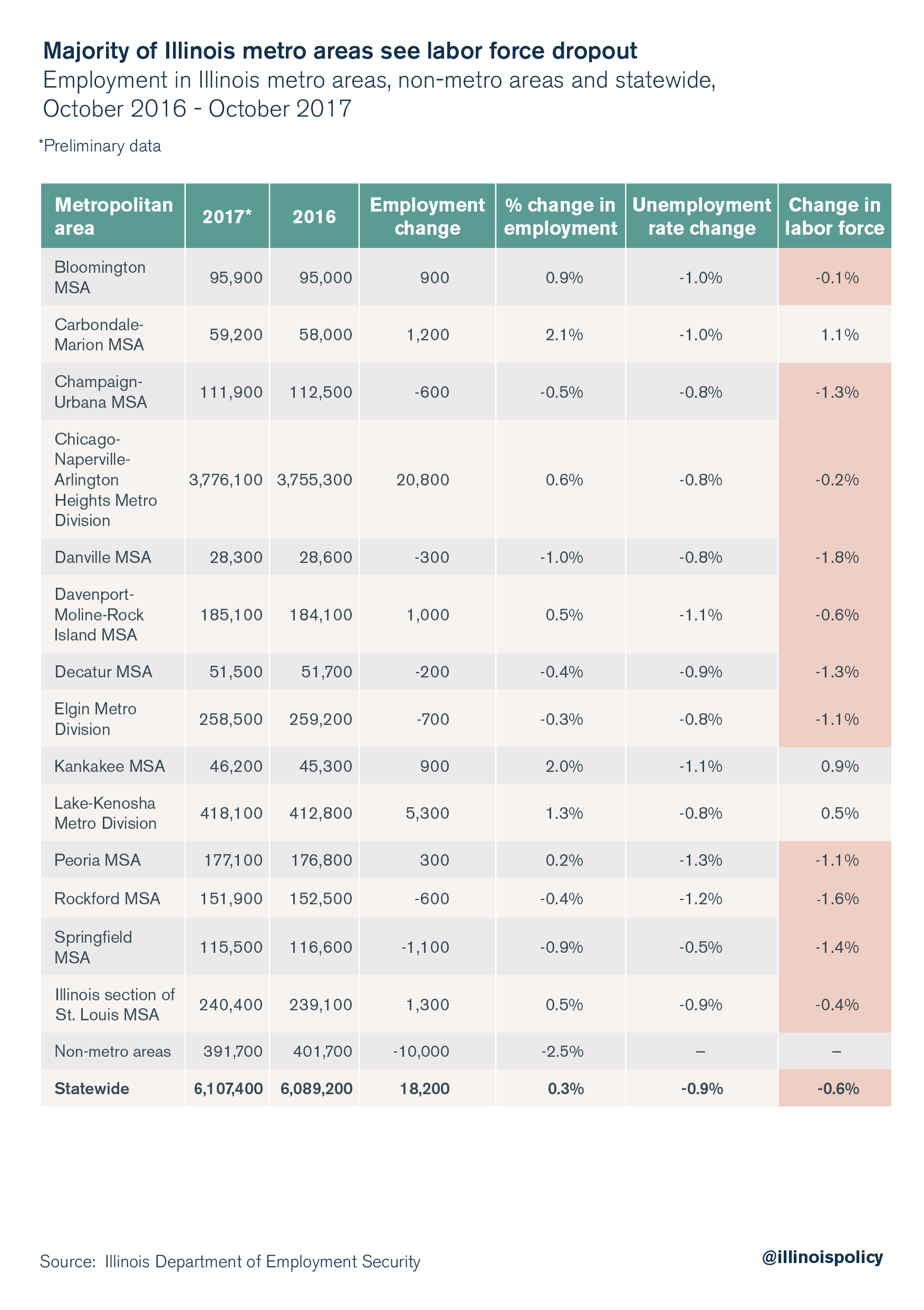More than half of Illinois’ metro areas added payroll jobs over the past 12 months, according to a Nov. 22 data release from the Illinois Department of Employment Security. But half a dozen are worse off than last year.
Nonfarm jobs increased in eight metro areas from October 2016 to October 2017, with the largest increases in Carbondale-Marion (up 2.1 percent, adding 1,200 jobs), Kankakee (up 2.0 percent, adding 900 jobs), and Lake-Kenosha (up 1.3 percent, adding 5,300). The Chicago-Naperville-Arlington Heights Metro Division saw the largest jobs growth in raw terms, adding 20,800 new jobs, an increase of 0.6 percent.
But not all of Illinois’ metro areas are growing jobs. And a majority of the state’s metro areas are experiencing labor force dropout.

Illinois businesses shed jobs in six metro areas over the year, with the largest losses coming in Danville (down 1 percent, losing 300 jobs), Springfield (down 0.9 percent, losing 1,100), and Champaign (down 0.5 percent, losing 600). Additionally, non-metro area employment fell further than any metropolitan statistical area (down 1.5 percent, losing 10,000 jobs).
Without Chicago-area gains, the state would have suffered a net loss of 2,600 jobs over the year, instead of adding 18,200 jobs. This data is further proof of the growing divide between the employment picture in the Chicago area and the rest of the state.
Furthermore, despite declining unemployment rates in all metro areas and 102 Illinois counties, most of this change stemmed from decreases in labor force participation. Carbondale-Marion, Kankakee, and Lake-Kenosha (which includes Wisconsin’s Kenosha County) were the only metro areas to see a drop in the unemployment rate due to increased employment. The rest of the state experienced dips in the unemployment rate because of a decrease in the number of job seekers.
With this in mind, lawmakers should look toward policies that foster a healthy, fair business climate across industries and across the state.
In light of Small Business Saturday, and the fact that businesses with fewer than 50 employees created 75 percent of Illinois’ net new jobs in 2016, state lawmakers should pay particular attention to making the state friendlier for entrepreneurs.
This does not include making small business owners pay some of the highest property taxes in the nation, the highest workers’ compensation costs in the region or raising the overall tax burden to fix Springfield’s spending problems.
Lawmakers should seek fixes to all of these pain points.